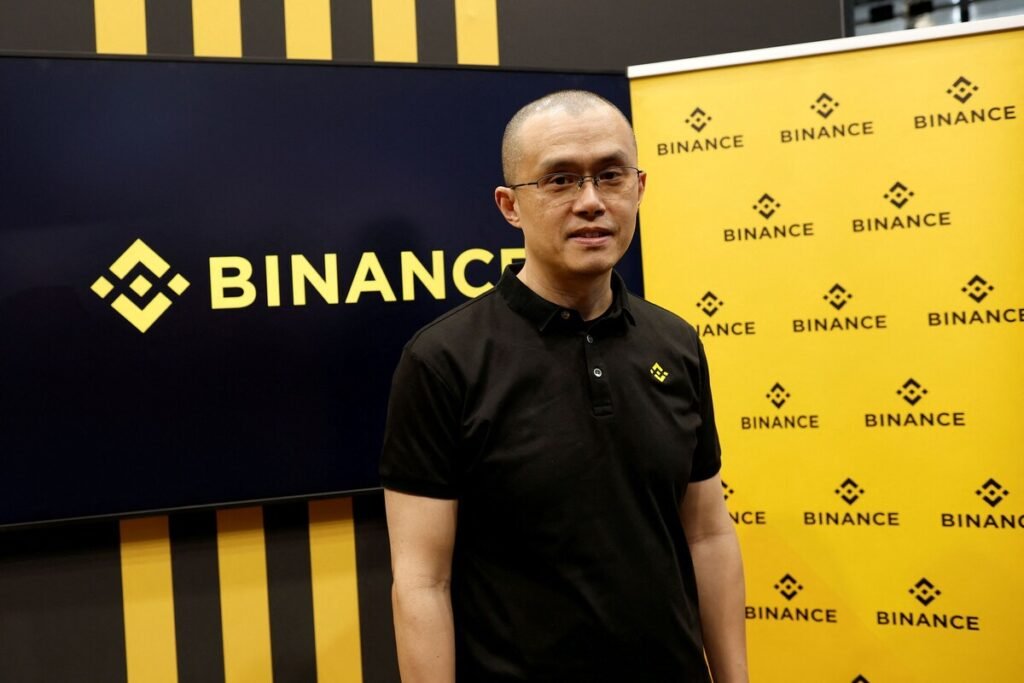Binance, the preeminent global cryptocurrency exchange, is actively engaging with numerous governments to contribute to the development of cryptocurrency regulations and the establishment of national digital asset reserves.
CEO Richard Teng indicated that a significant number of countries are drawing inspiration from the United States’ evolving approach to cryptocurrency policies under President Donald Trump’s administration.
This development signals a shift for Binance, occurring less than two years after the company admitted guilt to criminal charges in the U.S. related to money laundering and violations of international financial sanctions, resulting in penalties exceeding $4.3 billion.
In an interview with the Financial Times, Teng stated that the exchange has “been approached by quite a lot” of countries seeking guidance in formulating regulatory frameworks. He refrained from identifying the specific nations with whom Binance is currently collaborating.
The CEO highlighted the recent pro-cryptocurrency advancements in the United States as a catalyst for other countries. “Compared to many other jurisdictions, [the US] is way ahead on that front,” Teng commented.
Regulatory focus post legal resolution
Following its past legal challenges, Binance has significantly augmented its compliance infrastructure. Approximately 1,500 employees, representing nearly a quarter of its 6,000-person global workforce, are now dedicated to compliance roles.
Teng emphasized Binance’s ongoing commitment to substantial investments in compliance, asserting that the company is now “in a form and shape that regulators appreciate much more compared to the past.”
This intensified focus on regulatory alignment follows the resignation of co-founder Changpeng Zhao as CEO in 2023. Zhao subsequently served a four-month prison sentence in connection with the U.S. charges.
Separately, French authorities have intensified their investigation into Binance concerning alleged breaches of European anti-money laundering and terrorist financing regulations. Binance has refuted these allegations, pledging to “vigorously fight any charges made against it.”
Growing momentum for national crypto reserves
A central aspect of Binance’s advisory role involves assisting governments in establishing strategic national digital asset reserves. This initiative aligns with President Trump’s directive to create a U.S. strategic bitcoin reserve.
“We have actually received quite a number of approaches by a few governments and sovereign wealth funds on the establishment of their own crypto reserves,” Teng explained.
Trump’s initial announcement regarding a cryptocurrency reserve met with some disappointment among traders, as the U.S. plan primarily involves assets forfeited to law enforcement rather than new acquisitions.
Current data from Arkham Intelligence indicates that the U.S. holds approximately $17.1 billion worth of bitcoin and other cryptocurrencies on the Coinbase exchange.
Global evolution of crypto acceptance
Bitcoin reached a record peak of $108,000 following Trump’s election victory in November of the previous year, although prices have since decreased by approximately 10% as market momentum waned.
Teng observed that Binance has “benefited greatly in the past few months from the policies coming out from the US. I think the sentiment has shifted a lot.”
The exchange is also actively pursuing the establishment of a global headquarters, a significant departure from former CEO Zhao’s previous stance that the company lacked a formal base.
“It requires serious deliberation and the board and the senior management are spending a lot of time doing the evaluation… and hopefully we are able to announce our intentions on that front,” Teng stated.
Recent announcements from Pakistan and Kyrgyzstan revealed that former Binance CEO Zhao has begun advising their governments on developing cryptocurrency regulations, indicating a broadening interest in crypto framework development beyond traditional financial hubs.
Rory Doyle, head of financial crime policy at compliance software group Fenergo, noted the updated global anti-money laundering regulations that now include cryptocurrency companies. “Money laundering is a $2tn-to-$3tn a year business and crypto is getting into line,” he commented.
Teng also indicated that the U.S. Securities and Exchange Commission has paused its investigation into Binance since President Trump’s inauguration, with both parties reportedly working towards a potential resolution.
Furthermore, World Liberty Financial, a cryptocurrency project with ties to the Trump family, intends to launch a stablecoin utilizing Binance’s blockchain as a primary platform.
